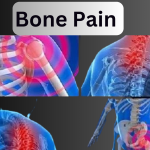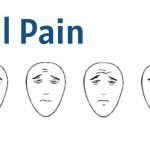Neck Pain, Causes, Warning Sings, Severity & Treatment Options. Learn also about, stiffness in the neck, neck and shoulder pain, neck pain right side, neck and shoulder pain on left side, headache in back of head and neck and more.
A bad sleeping position, excessive use, or poor posture is the usual causes of neck pain or stiffness. But occasionally, it can be a sign of a serious injury like whiplash or illness, necessitating medical attention.
A type of pain called neck pain starts in the neck and might travel down one or both arms. Neck discomfort can be brought on by a variety of ailments or problems that affect the neck’s ligaments, muscles, joints (Joint Pain), connective tissues, or neurons.
Neck discomfort is common. Poor posture, which can be brought on by slouching over a workbench or hunching over a computer, strains the neck muscles (Muscle Pain). Osteoarthritis is a further common cause of neck pain.
What Is Neck Pain?
Cervicalgia, often known as neck pain, is a discomfort in or near the vertebrae under the skull. Your cervical vertebrae are another name for your neck. Neck discomfort is a common indicator of a variety of diseases and injuries.
If you don’t get treatment for neck discomfort, it might affect your everyday life and low your quality of life.
Fortunately, the majority of neck pain causes aren’t significant and get better with simple remedies like painkillers such as Tapentadol Tablet, physical activity, and stress reduction.
Your head is supported and moved by the skeleton, muscles, and tendons in your neck. Any abnormalities, inflammation, or damage may result in neck pain or rigidity.
What Are Neck Pain Symptoms?
Your neck pain could be modest and barely affect your everyday activities or it could be severe and render you disabled.
Stiff Neck:
Neck stiffness or feeling stuck are frequent complaints made by people with neck pain. Sometimes, neck pain might result in a decreased range of motion.
Sharp Pain:
Neck discomfort might have a localized, acute (Acute Pain), or stabbing pain sensation.
Pain When Moving
Neck discomfort typically gets worse when your cervical spine is moved, twisted, or extended from side to side or up and down.
Radiating Pain or Numbness
Your head (Head Pain), trunk, shoulder (Shoulder Pain), and arms could get affected by your neck ache. You can have tingle, numbness, or weakness in one or both of your arms or hands if a nerve is being compressed by your neck ache.
A neck-pinched nerve can result in neck pain that shoots down the arm and may feel intense or burning. You should see a physician if you experience this sign.
Headache
A headache (Headache Pain) known as a cardiogenic headache can develop from neck pain. In addition to a migraine, neck pain may also be an indication of a migraine.
Pain When Palpated.
If your cervical spine is palpated, or physically inspected, your neck pain might get worse.
How Is Neck Pain Managed Or Treated?
Most neck pain reasons eventually get better and can be treated at home. Your doctor may recommend the following therapies to treat your symptom.
Muscle Relaxant and Painkiller:
First-line therapy for neck pain frequently involves medication like Pain O Soma 500mg and Soma 350mg medication, such as nonsteroidal anti-inflammatory medications to reduce neck discomfort and inflammation, and muscle relaxants to promote muscle healing.
Physical Therapy:
To strengthen the muscles and tendons in your neck and increase flexibility, you may work with a physical therapist or a fitness trainer.
A transcutaneous electrical nerve stimulation device blocks the pain signal by applying a little electrical current to the skin close to the nerves (Nerve Pain). Before utilizing a TENS device, always consult a healthcare professional.
Steroid Injections:
A shot given close to the nerve roots might lessen pain and inflammation.
Alternative Therapies:
Your doctor can suggest massage to assist loosen up tight muscles causing your discomfort or acupuncture to relieve pain. To align your spine, you might visit an osteopath or chiropractor.
Surgery:
The majority of neck discomfort causes don’t call for surgery. However, if one or more of your spine vertebrae have moved out of position or are pressing on your nerve, you might require surgery. You might need to work with a spine or pain specialist if your pain is severe.
What Can I Do To Relieve Neck Pain At Home?
You can take steps at home to ease neck pain in addition to taking painkillers, including:
Hot Therapy:
Every few hours, spend 15 minutes applying a hot towel or heating pad to the area of your pain or taking a hot shower. Your muscles become softer and blood flow is encouraged by the heat.
Cold Therapy:
Apply a cold pack or a bag of frozen vegetables to your skin for 15 minutes every few hours while keeping it covered with a thin towel.
Your blood vessels narrow as a result of the cold, reducing swelling and inflammation. Apply cold instead of heat to a wound right away.
Exercise:
To reduce neck pain and increase your range of motion, do the neck exercises recommended by your healthcare professional. If you have a pinched nerve in your neck or a significant neck injury, avoid exercising.
Techniques for reducing stress include mindfulness, meditation, breathing exercises, and yoga, which can assist your body release tension (Tension Headache) that may be a cause of neck pain.
Quit smoking:
It weakens the bone structure, hastens the onset of degenerative disc disease, and hinders the healing process.
How Neck Pain Is Treated?
You will be physically examined by a doctor, who will also document your whole medical record. Get ready to go into great detail about your symptoms. In your disclosure to your doctor, list all prescriptions, without a prescription, and dietary supplement usage.
You should also tell your physician about any recent incident or injury you’ve had, even if they don’t appear linked.
How a neck ache is treated depends on its cause. In addition to a thorough history and physical examination, the physician may order any or all of the following imaging treatments and tests to help diagnose and determine the source of your neck discomfort:
- Test of blood
- X-ray
- An MRI
- CT scan
- Electromyography
Simple self-care remedies and a day or two of relaxation are frequently sufficient to end a neck pain episode.




1 Comment